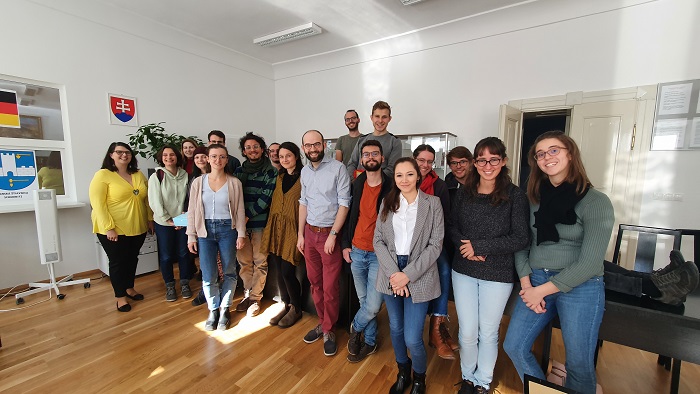The students visited the hydroelectric power plant in Gabčíkovo-Nagymaros with Igor Matečný (Comenius University Bratislava). Peter Paulík (Slovak Technical University of Bratislava) led a guided tour about the bridges of Bratislava and their construction methods in Slovakia. In addition, in a lecture at the Goethe-Institut Bratislava on "Exploring Present Future," urban planner Milota Sidorová introduced various aspects of urban design, such as the social consequences of climate change and what urban design for a diverse society should look like.
Banská Štiavnica and the High Tatras
The students’ next destination was the old mining town of Banská Štiavnica. There the students of the Elite Graduate Program "East European Studies" learned about the changing demands on infrastructure over time and the structural change from industry to tourism taking place at the same time.
The last destination of the summer school was the High Tatras. There, tourist guide Ivana Figová gave a knowledgeable guided tour with a view to the tension between nature conservation and tourism. This can be experienced very well in the High Tatras. On the one hand, the mountains are a national park and habitat for various animal and plant species. This uniqueness has attracted people since the nineteenth century. The presence of hotels, winter sports facilities and roads has irrevocably changed its nature. In Figová’s words, "we have to make the decision: National Park or amusement park."
A special attraction of the summer school was its composition. With their different disciplinary backgrounds, interests, language skills and life experiences, the students were able to discuss these and other topics controversially and make new discoveries in the process. Especially in informal settings, new connections emerged that would probably never have come into being without this summer school – and this, too, is a kind of infrastructure that shapes action.
Text: Johannes Nüßer, Elite Graduate Program "East European Studies"


